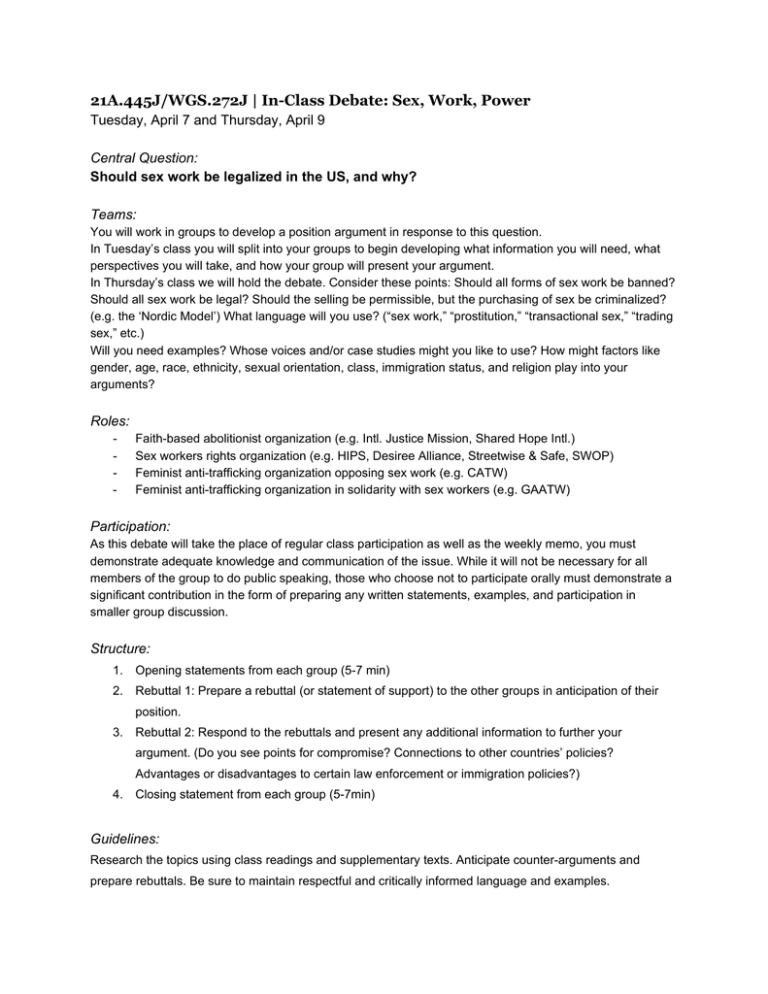21A.445J/WGS.272J | In-Class Debate: Sex, Work, Power Tuesday, April 7 and Thursday, April 9 uestion:
advertisement

21A.445J/WGS.272J | In-Class Debate: Sex, Work, Power Tuesday, April 7 and Thursday, April 9 Central Question: Should sex work be legalized in the US, and why? Teams: You will work in groups to develop a position argument in response to this question. In Tuesday’s class you will split into your groups to begin developing what information you will need, what perspectives you will take, and how your group will present your argument. In Thursday’s class we will hold the debate. Consider these points: Should all forms of sex work be banned? Should all sex work be legal? Should the selling be permissible, but the purchasing of sex be criminalized? (e.g. the ‘Nordic Model’) What language will you use? (“sex work,” “prostitution,” “transactional sex,” “trading sex,” etc.) Will you need examples? Whose voices and/or case studies might you like to use? How might factors like gender, age, race, ethnicity, sexual orientation, class, immigration status, and religion play into your arguments? Roles: - Faith­based abolitionist organization (e.g. Intl. Justice Mission, Shared Hope Intl.) Sex workers rights organization (e.g. HIPS, Desiree Alliance, Streetwise & Safe, SWOP) Feminist anti­trafficking organization opposing sex work (e.g. CATW) Feminist anti­trafficking organization in solidarity with sex workers (e.g. GAATW) Participation: As this debate will take the place of regular class participation as well as the weekly memo, you must demonstrate adequate knowledge and communication of the issue. While it will not be necessary for all members of the group to do public speaking, those who choose not to participate orally must demonstrate a significant contribution in the form of preparing any written statements, examples, and participation in smaller group discussion. Structure: 1. Opening statements from each group (5­7 min) 2. Rebuttal 1: Prepare a rebuttal (or statement of support) to the other groups in anticipation of their position. 3. Rebuttal 2: Respond to the rebuttals and present any additional information to further your argument. (Do you see points for compromise? Connections to other countries’ policies? Advantages or disadvantages to certain law enforcement or immigration policies?) 4. Closing statement from each group (5­7min) Guidelines: Research the topics using class readings and supplementary texts. Anticipate counter­arguments and prepare rebuttals. Be sure to maintain respectful and critically informed language and examples. MIT OpenCourseWare http://ocw.mit.edu 21A.445J / WGS.272J Slavery and Human Trafficking in the 21st Century Spring 2015 For information about citing these materials or our Terms of Use, visit: http://ocw.mit.edu/terms.



